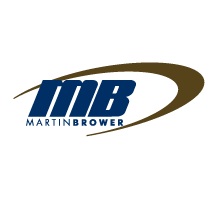
The Martin-Brower Company, L.L.C.
1956 was the beginning of our ongoing relationship with McDonald's and it started with deliveries to Ray Kroc's first restaurant in Des Plaines, Illinois. Many big ideas start as a sketch on a paper napkin. We put our own twist on the story. The paper napkin was our big idea. As McDonald's grew, so did we. We dropped "Paper" from the company name in 1964 to better reflect our additional services. In 1972, we developed the "Total Supply" advantage, in which we supply all of a restaurant's inventory needs, including our foundational paper products. It's the same brand of full-circle service that we're proud to offer today.